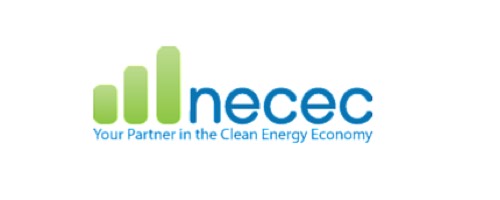Energy Foundation made its first grant to New England Clean Energy Council in 2010.
The New England Clean Energy Council (NECEC) represents hundreds of clean energy companies across the Northeast and helped to make the nation’s first carbon-trading program even more effective by organizing businesses to show their support for updating the program’s rules.
The Regional Greenhouse Gas Initiative (RGGI) is a market-based emissions reduction program that operates in Connecticut, Delaware, Maine, Maryland, Massachusetts, New Hampshire, New York, Rhode Island, and Vermont. New Jersey and Virginia have both announced plans to participate (in New Jersey’s case, to rejoin) starting in 2020. RGGI requires electricity generators to hold an allowance for every ton of carbon dioxide (CO2) they emit from their power plants. The number of allowances is capped, and companies that want to emit more must buy additional allowances from that limited supply. This provides an economically efficient incentive to reduce the region’s CO2 pollution.
RGGI states invest the proceeds in clean energy programs that benefit consumers: energy efficiency, renewable energy, and other clean energy technologies. A recent report from the Analysis Group estimates that “RGGI states will realize $1.4 billion in net economic value from RGGI’s implementation during the 2015-2017 period” and “will create more than 14,500 new job-years (the equivalent of one full-time job for the duration of one year)” while seeing a drop in power plant emissions “by more than 50 percent over the nine years since the RGGI program launch.”
RGGI and other complementary policies helped deliver $10 billion in health benefits between 2009 and 2014, because efforts to reduce carbon pollution also reduce emissions of dangerous sulfur dioxide (SO2) and nitrogen oxides (NOx) that pour out of power-plant smokestacks along with carbon.
NECEC worked with our partners Cater Communications and the Northeast Energy Efficiency Partnership to recruit, train, and promote business leaders to make the economic case for strengthening RGGI by tightening the emissions cap, encouraging the states to tighten the RGGI cap to current emission levels to lock in recent declines.
NECEC and business leaders have testified at public hearings, published opinion pieces, met with reporters and editorial boards, recruited signers for letters to the nine states’ governors, and otherwise continued to call for RGGI to be strengthened.
In December 2017, the RGGI states issued a new model rule and cap level that locks in emission reductions achieved to date, adds new program enhancements, and will continue to drive additional reductions through 2030. NECEC and many other EF grantees are now working to help finalize the new rule in each state.
Thumbnail image by Green Mountain Power Corporation/NREL
